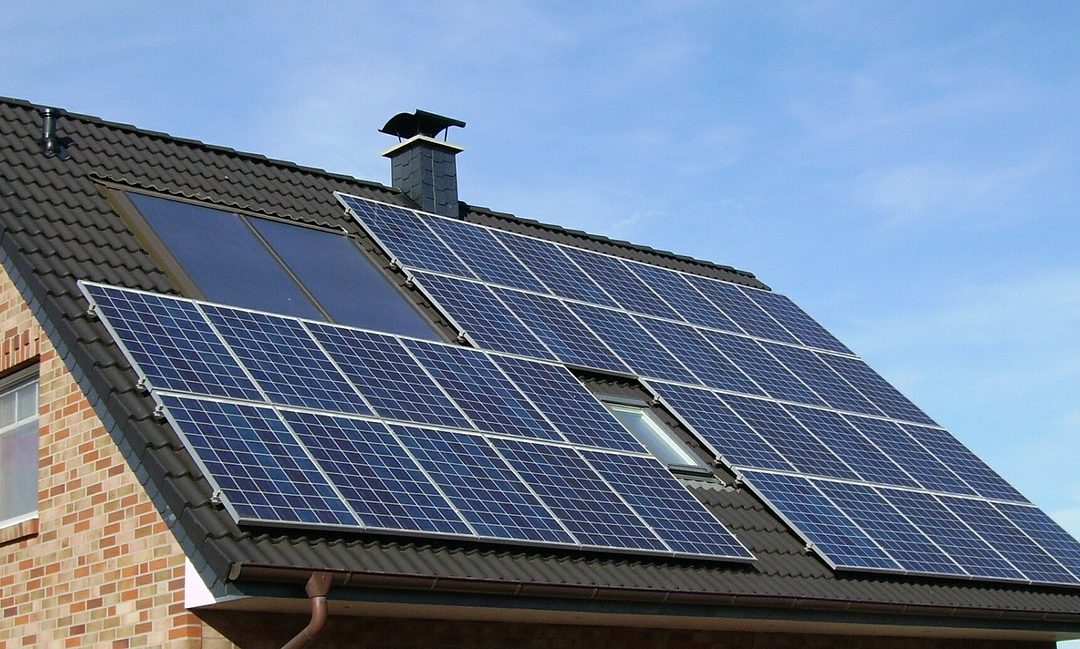Electric power consumption has nearly tripled since 1960. In our world of digital connectivity and technology addiction, electricity use is sure to continue rising. But the source of that energy is gradually changing thanks to solar panels.
We all know it’s bad news to fulfill our energy needs by burning fossil fuels that saturate the atmosphere with greenhouse gases and pollution. So how can we satisfy our constant need for electricity while still showing our Earth the consideration it deserves?
The answer can be found in solar energy. You’ve probably seen panels arranged on your neighbor’s roof or installed around local businesses. Now you’re starting to wonder, should I get them, too?
Continue reading to answer your own question by weighing the advantages and disadvantages of using this type of renewable energy technology.
Why Is Solar Energy Important?
Solar energy is an innovative technology that captures the sun’s energy and converts it into energy we can use. This clean energy does not lead to the acid rain, pollution, or fracking associated with non-renewable energy sources like oil and coal.
Solar energy isn’t just clean; it’s also powerful. The sunlight received by the earth in one hour is powerful enough to meet the world’s energy needs for an entire year! We can use solar energy to charge our phones, run the AC, and everything in between.
What Are Solar Panels?
Solar panels capture and create solar energy. They absorb sunlight with photovoltaic cells. Those cells convert sunlight into energy that generates electricity.
The uses of solar panels vary, but most homeowners install them on top of their homes to capture the most amount of sunlight each day. Efficient panels capture more energy during the day than needed. Extra energy is stored in a battery and then used at night.
The Advantages of Using Solar Panels
You’re still wondering if renewable energy installation is the right choice for your home. It could be! Solar panels offer many advantages that can help you save money, protect the environment, and detach from the grid.
Make Your Home Energy Independent
Solar panels make it possible to use your own source of electricity. This provides energy independence and liberates your home from relying upon the electric grid. When other homes lose power after a storm, your home will continue to enjoy uninterrupted power.
Energy independence also serves the larger purpose of reducing our country’s dependence on foreign energy imports. This probably isn’t something you worry about on a regular basis, but every homeowner who uses solar panels brings America one step closer to achieving economic, political, and environmental stability.
Reduce Your Electricity Bills
Since you generate your own power using solar, you can kiss your high electric bill goodbye. Other than the initial cost of installation, solar power is a free source of energy. Maintenance is very minimal and returns are high.
You may run into cloudy or unusually hot days that require you to borrow electricity from the grid. You can still avoid paying a bill by participating in a net metering program. Net metering allows you to send excess solar power to the grid in exchange for credits on your electric bill.
Earn Tax Credits and Rebates
You can also benefit from tax credits and rebates when you choose to install solar panels on your home.
The federal government offers a tax credit equal to 30 percent of your total system when you file your taxes. Most state and local governments also offer rebates that can cut your costs in half!
Between reduced electric bills, tax credits, and rebates, solar panels offer a return on their investment in less than ten years. They’re designed to last for at least 25 or 30 years. This means you can enjoy more than two decades of completely free electricity. That’s the kind of math we like.
Reduce Greenhouse Gases
Traditional electricity from the grid comes from coal, natural gas, and other fossil fuels. They must be burned to produce electricity. This releases harmful greenhouse gases into the atmosphere.
Solar panels offer a much cleaner source of power. They simply trap the sun’s energy and convert it into electricity without the need to burn or release toxic gases.
The bottom line? If you want to do your part to preserve the environment and minimize dependency on fossil fuels, solar panels are the way to go.
The Disadvantages of Using Solar Panels
Of course, solar panels are not without their disadvantages. This rundown will help you identify any potential pitfalls.
High Upfront Costs
Solar panels should be viewed as an investment due to their high initial costs. You should expect to spend at least $20,000 on a system that meets the needs of your household.
The return on this investment does not occur overnight. It is achieved gradually based on your electricity rates, tax incentives, and solar efficiency. Some homeowners feel that it’s worth the wait to enjoy free electricity and support clean energy, but others disagree.
PRO TIP! You can enjoy the benefits of solar panels without the tough upfront costs by starting small with affordable, independent solar power units. Power your boat, RV, or small cabin with a small, flexible solar panel instead.
Your HOA Might Try to Stop You
Solar panels are becoming increasingly common across the United States, but they are still not acceptable in every community. Many Homeowners Associations have strict rules regarding the installation of these panels on neighborhood homes.
Be sure to learn about your HOA’s solar panel regulations before assuming you are safe to install them. It’s possible that you might need to provide documentation or even negotiate the location of your panels before you receive approval.
Solar Panels Are Weather Dependent
It’s easy to decide how to use solar panels in areas like Florida, Texas, and Arizona where the sun is always strong. But states like Washington that experience a high percentage of cloudy and rainy days have a major disadvantage.
In fact, on cloudy days solar panels can only obtain about 10 percent of the energy created on clear, sunny days. This isn’t a major problem if you live in a location that receives regular sun, but it could hurt efficiency in places with frequent clouds.
Should I Get Solar Panels?
Installing solar panels is a wise choice for homeowners who are ready and willing to make a high initial investment in order to reap the benefits for decades to come. It’s true that this type of renewable energy offers the best results in sunny locations, but solar technology is advancing quickly!
The bottom line? The answer to your question depends on your own priorities. If you want to contribute to a healthier planet, earn energy independence, and escape your monthly electric bills, then installing solar panels is the right choice for you.


